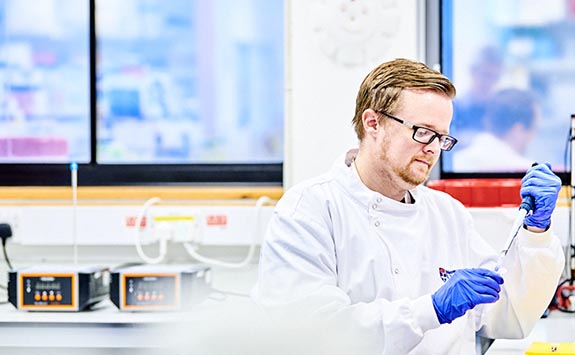Patient and Public Engagement and Involvement (PPIE)
What is PPIE?
Patient and Public Engagement and Involvement (PPIE) is the collaborative partnership between the public and researchers. They help to shape research, ensuring it is:
- relevant
- valuable
- beneficial for communities
"Involvement" means working with people in research. For example; advising on project design or developing participant materials.
"Engagement" means disseminating information and sharing knowledge about research. This could be done through public events or online resources.
Why is PPIE important in neuroscience research?
Patient and Public Involvement and Engagement (PPIE) is important in neuroscience research because it brings the crucial perspectives of people with lived experiences. This includes patients and their families, into every stage of the research process. This collaboration:
- ensures research is relevant to real-world needs
- improves study design and outcomes
- fosters public trust and understanding
- upholds the democratic principle of giving people a say in research that affects them
Research funders are increasingly expecting PPIE to be a core feature of any funding application.

How can I use PPIE in my research?
In research involving human participants, PPIE is vital from the development of the research idea to the dissemination of results. Patients and the public can contribute to:
- the identification of research priorities, to ensure they are relevant to the people that the research is recruiting
- the development of the research protocol, to ensure that it is acceptable to participants
- the development of participant-facing materials such as information sheets
- the development of any questionnaires or interventions
- monitoring study progress, including reflecting on participant experience and possible reasons for recruitment difficulties
- interpreting the meaning of results to individuals
- shaping the patient/public dissemination plan
In research that does not involve human participants, the involvement of patients and the public may be less extensive. Funders will expect researchers to show that their proposal meets the priorities of patients and the public. PPI groups can make an important contribution by:
- reviewing lay summaries
- by developing a dissemination strategy
- helping researchers to understand the relevance of their work
- showcasing how to frame their work when speaking to the public
Important considerations
Members of the public and patients share their time and expertise to help advance research. It is vital that they are only asked for their opinions when their views will have an impact on the project. Never seek involvement of the public as a tokenistic gesture or an afterthought. This risks alienating people who make a valuable contribution to our research.
Further Information and Resources
- Faculty or Medical Sciences Engagement
- UK Standards for Public Involvement
- NIHR Applied Research Collaboration video introduction to PPIE
- NIHR and HRA resources and training for public involvement in health and social care research:
- Newcastle Biomedical Research Centre: includes a PPIE planner
- Voice Global: can be used to recruit PPIE participants
- PPIE in Neurotech
- ARUG: Aphasia Research Users Group
- Newcastle Health Research Partnership events relevant to PPIE
- Research Support Service: the RSS supports researchers at any stage of their career to develop competitive funding applications for health, public health and social care research, including support with PPIE
.jpg)